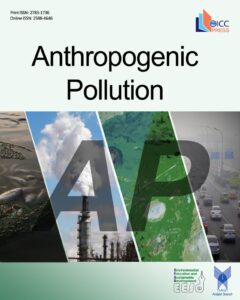The effect of source separation training on municipal waste reduction: A case study
Authors
Abstract
In this study systematic random sampling was conducted. To estimate the sample size, 100 households were selected based on the population of the city using Cochran’s formula. Total generated municipal solid waste was consecutively collected, weighed and separated during a week. Then, after providing the required training through face-to-face manner and brochures regarding the economic, social, cultural and environmental importance of source separation to each of the households, once again the generated wastes were collected, weighed and separated. The difference in the composition and amount of waste generated before and after the training was compared by independent t-test. The effect of the demographic characteristics of the head of the household on reducing the amount of generated waste was determined by correlation test. The results highlighted the training as an effective intervention on the weight of produced waste from each household before and after the training (P=0.000). Education increases people’s awareness about waste, recycling, harms of waste, definition of separation, benefits of separation, source separation and level of household education. The reduction in the amount of produced waste had no significant correlation with the age (P=0.89), occupation (P=0.16), income (P=0.95) and education level (P=0.36) of the heads of each household. The findings of this research showed that education, regardless of demographic characteristics, is an effective method to change specific behavior and create motivation to reduce the amount of waste at source, underlining the importance of training to improve waste recycling management.



